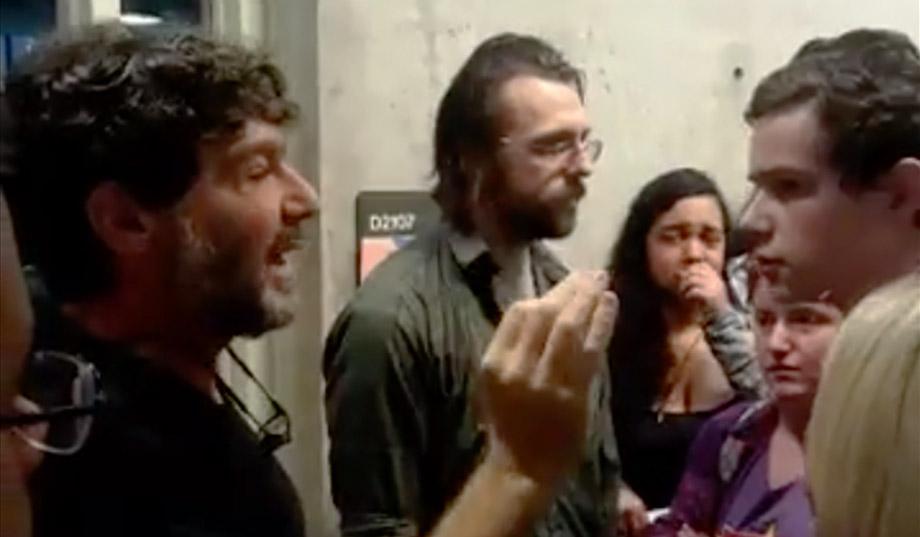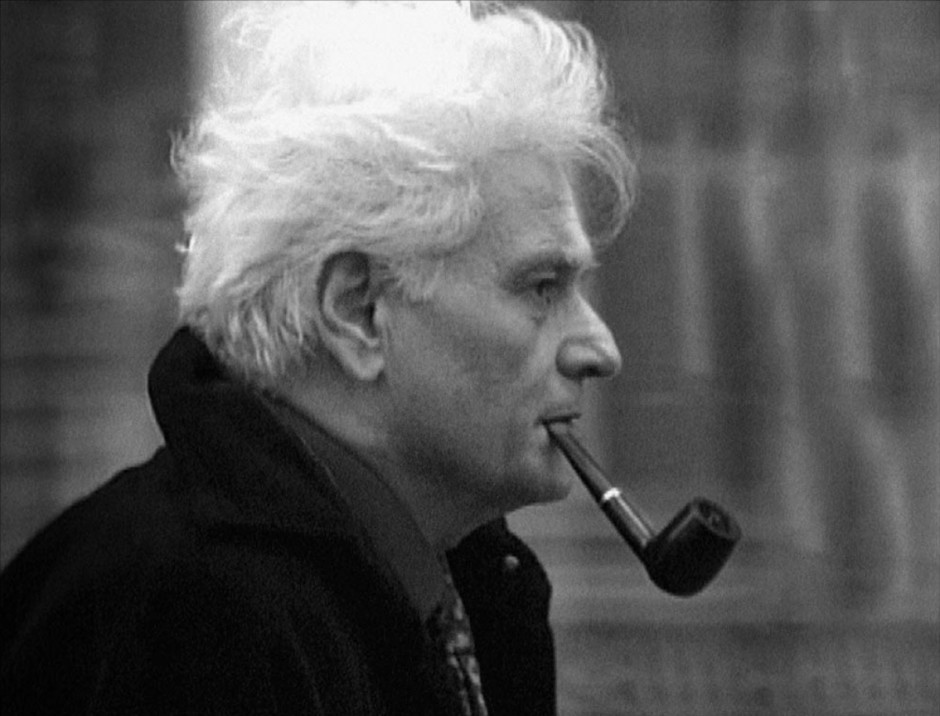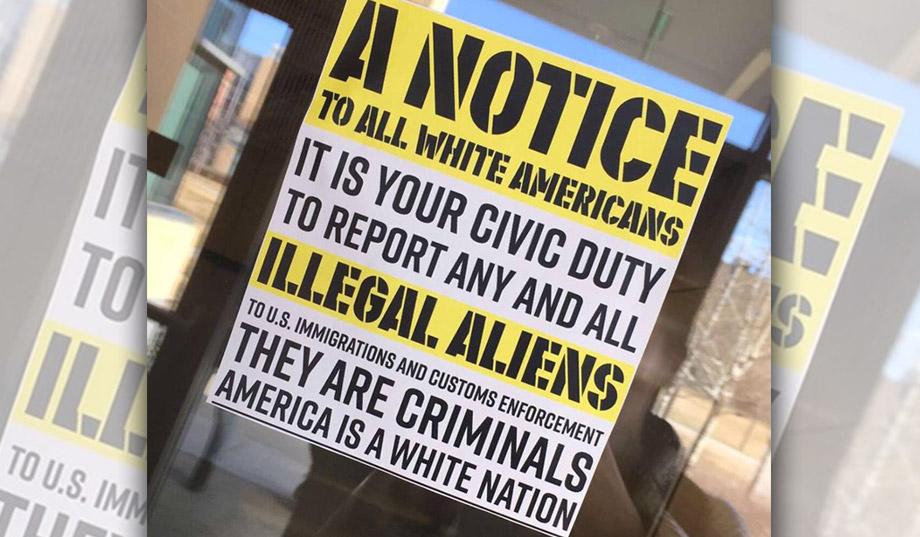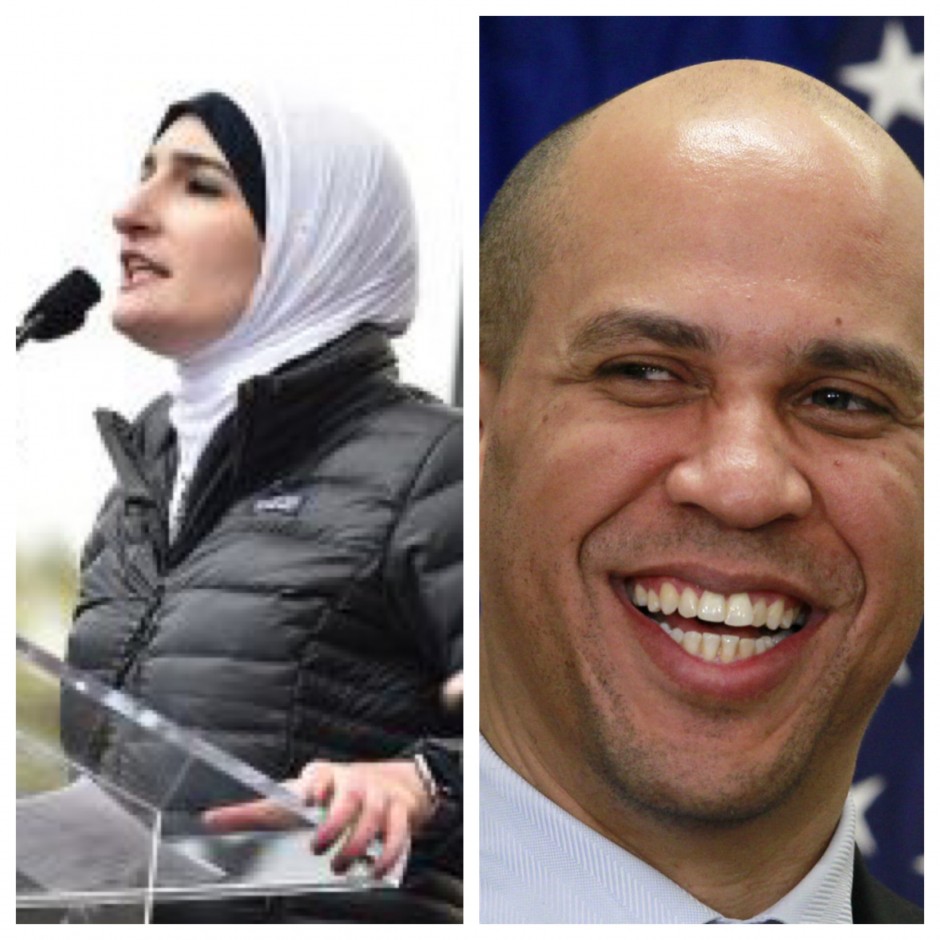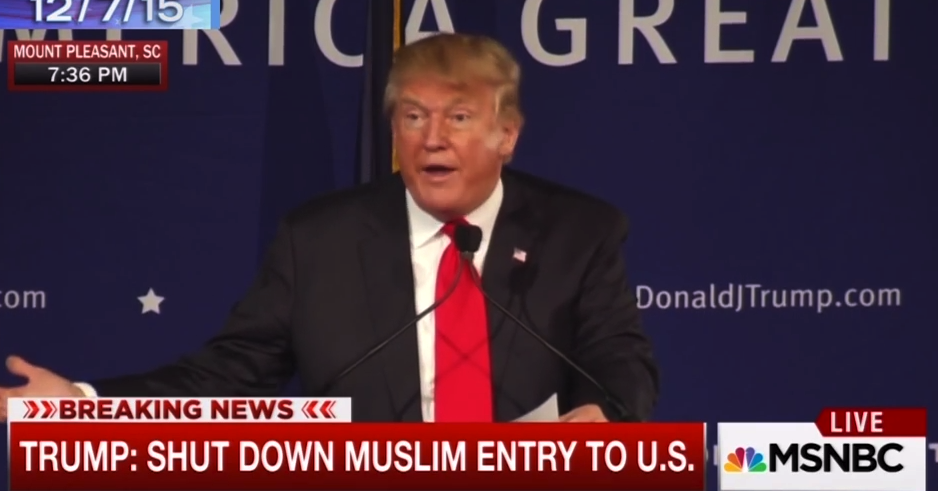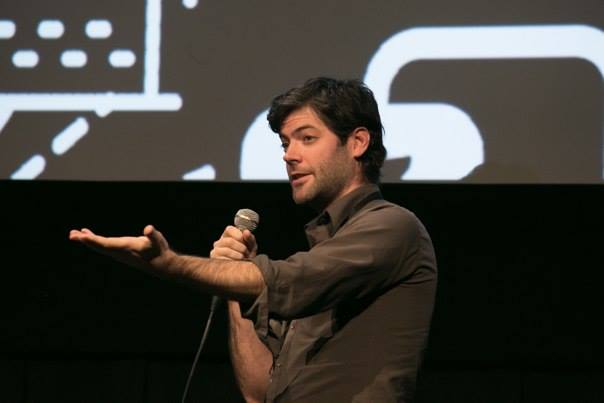In one debate after another on any issue with regards to religion, race, gender, or fairness, there is one maxim of faith you’ll hear repeated over and over again with an evangelist’s zeal – objective truth doesn’t exist. And what we hear to be the truth is merely based on power – power invested in the state, the media, the church, or the academy, just to name a few of the many nodes from which it emanates.
Downstream proponents of instersectionality repeat this constantly. One merely has to take a look at websites like Everyday Feminism to see this trope constantly carried out to shut down any criticism of their own movement.
One can be appreciative of this article for spelling out exactly what ideas are at play here.
“We are authorities on our own experiences and nobody else’s. Objectivity is often a sign of privilege and distance, not expertise… , nobody can ever argue from an objective or neutral perspective on things like social justice – because society treats no identity with neutrality. In other words, no matter who you are, your perspective will always be affected by the privilege or oppression you face…At risk of oversimplification, black feminist thought centers the lived experiences of marginalized people. It argues that subjectivity is valuable because people’s lived experiences are valuable – because people’s spoken truths are, in and of themselves, truths…”
Much of this rhetoric has its origins in Critical Race Theory, which explicitly credits its own origins to the Postmodern philosophers of the 1970s. They too spell out exactly the way by which they can dismiss even the concept of an objective point of view – because power is all that really exists, and knowledge is never, in any way, separate from it.
Michel Foucault, in Discipline and Punish: The Birth of the Prison, spells this out explicitly and articulately.
“Perhaps, too, we should abandon a whole tradition that allows us to imagine that knowledge can exist only where the power relations are suspended and that knowledge can develop only outside its injunctions, its demands and its interests. Perhaps we should abandon the belief that power makes mad and that, by the same token, the renunciation of power is one of the conditions of knowledge. We should admit rather that power produces knowledge (and not simply by encouraging it because it serves power or by applying it because it is useful); that power and knowledge directly imply one another; that there is no power relation without the correlative constitution of a field of knowledge, nor any knowledge that does not presuppose and constitute at the same time power relations. These “power-knowledge relations’ are to be analysed, therefore, not on the basis of a subject of knowledge who is or is not free in relation to the power system, but, on the contrary, the subject who knows, the objects to be known and the modalities of knowledge must be regarded as so many effects of these fundamental implications of power-knowledge and their historical transformations. In short, it is not the activity of the subject of knowledge that produces a corpus of knowledge, useful or resistant to power, but power-knowledge, the processes and struggles that traverse it and of which it is made up, that determines the forms and possible domains of knowledge.”
Who else seems to subscribe to this way of thinking? The populist movement that put Donald Trump in the White House, seeing itself as an oppressed minority, is now also tearing down the edifice of truth with zeal. They too see their right to their own truth, their own alternative facts, and view their own fight against ‘elitist’ versions of truth in the same framework of the oppressed against the powerful. The powerful are usually some combination of the media, Hollywood, academia, and urban cities (though the media seems to consistently be the favorite target). And despite an exhaustive and unprecedented catalogue of Trump outright lying, it doesn’t seem to matter. He’s their guy. “They believe they’re getting lied to constantly, so if their hero tells lies in order to strike back, they don’t care” said Republican Strategist Rob Stutzman, who worked against Trump in the GOP primaries, a description of the kind of real-politik struggle of narratives that postmodernists see as being the reality of the world.
One New York Post columnist laid it out just after Trump’s victory. His comments about suffering at the hands of a ‘dominant culture’ could make any Critical Race Theorist or Gender Theorist proud in another context.
The factory workers, the veterans, the cops, the kitchen help, people who plow the fields, make the trains run, pick up the trash and keep the country together and keep it moving — they are all now winners. As one, these cogs of our daily life rose up in a peaceful revolution, their only weapons the ballot box and their faith in the future.
Trump voters had the courage of their conviction to go against all their betters, all the poobahs and petty potentates of politics, industry and, above all, the fraudulent hucksters of the national liberal media.
And who, at this extraordinary juncture, dares say that Trump is not worthy of victory and of the salute of his countrymen? He has done what nobody thought he could, overcoming the doubts and scoffs every incredible step of the way.
No candidate in modern times and perhaps ever has suffered such abuse at the hands of the dominant culture. Virtually every day, nearly all the front pages and broadcasters in the entire country vilified him in an attempt to destroy him.
The late-night comics made fun of him like so much trailer trash, Wall Street saw him as a threat, Hollywood looked down on him and even the pope added his two cents of disdain.
It was dirty pool, against any standard of fairness and decency, but that was not the would-be assassins’ biggest mistake. It was that failing to destroy Trump, the elite smart set unleashed its contempt on his supporters.”
Anna Katherine Mansfield in the Washington Post articulates how similarly Trump supporters prioritize experience over objectivity. Their demands that people listen to their ‘experience’ and ‘their truth’ are heavily praised when placed in a minority context in the mainstream of the media and academia.
It’s certainly easy for Trump supporters to “know” without proof that the mainstream media isn’t trustworthy: It hasn’t represented their point of view, their truth, in years, and therefore is inherently suspicious… Facts don’t matter if the emotional impact is real.
With this complete eradication of the concept of truth, the effects of the post-truth era are manifest. From denial of basic truths about discrimination against minorities to truths about climate change, the economy, and vaccines, the ability to dismiss truths as illuminated via the scientific method – still the most powerful tool we have for doubling our lifespans and putting rockets into orbit – seems greater than ever before. I say this of course being completely cognizant of the lies of the Bush years, and aware that some mythical Golden Era of truth never existed in American politics. This doesn’t change the fact that the frequency of lies and the manner in which they occur are unprecedented in recent history, and it’s not an accident that Trump won an election in a zeitgeist so carefully prepared for his arrival by embracing alt-truth for decades.
To a certain degree, all of us who embraced relativism are at fault for this current state of affairs. How can one challenge lies if we’ve spent so long attacking truth as a concept for generations? One person I’ve connected with on social media, Nicolai Gamulea Schwartz, parodied the predicament perfectly – “There’s no such thing as truth, therefore there’s no such thing as lies. They’re all nodes in a semantic network of power.”
If we want to try and change this – if we want liars in power to be accountable for skirting the truth, if we want children to be vaccinated and climate change dealt with as a real problem, we have to attack this disease at its source. So the next time you may feel tempted to do so, check your factual impairment – please stop walking around saying everything is about power. Your second-rate unconscious plagiarism of Lyotard and Foucault isn’t, for lack of a better word, “true”.
Yes it’s true, people in power often try to impose their narrative upon those with less power. This is an observation that Postmodernists aren’t incorrect for pointing out. It is a totally different observation, however, from whether or not any such a narrative is true. To this author, this is exactly where the postmodern account goes wrong – equating narrative with truth.
I don’t doubt that this equivalence is reinforced with the best of intentions. Plenty of real suffering was inflicted upon the powerless by the powerful in the name of some objective truth that was anything but. One need only go back to the history of pseudo-scientific explanations used in the 19th century to justify racism and slavery to see what damage this can cause, or how conquering civilizations unleashed unimaginable cruelty upon the conquered thinking they did so for the conquered’s benefit, bringing God and civilization to the savages.
But the idea that one can only correct for this only by undermining truth itself is misplaced. Who here can look at such 19th century pseudo-science and affirm it as science today, any more than a chemist today affirms alchemy? Subjecting such questions to scientific scrutiny and peer review leads to an overwhelming number of identical conclusions to those desired by the postmodernists, but without the Trumpian chaffe that has accompanied it. To say otherwise is to claim that aspirations to racial and gender equality are in and of themselves irrational – a position all too welcome by the Richard Spencers of the world, whose rhetoric and justifications often sound all too similar to the postmodernists themselves.
It’s also not crazy to point out that yes, often personal bias does get into scientific analyses. People do have different perspectives and sometimes objectivity gets clouded by them. The whole purpose of the scientific method and peer review is to weed them out, and refine such views. This leaves conclusions that are still never perfect – just better than all the others. Calculations made to send rockets into flight always have a margin of error. The point is not that they will be perfect – only that they, unlike alternative methods, get the rocket into the air. No amount of ‘personal experience’ or ‘alternative facts’ even comes close to accomplishing this, and it is rather odd that we think that they will do so on other vitally important questions of equality and human rights.
And the other important thing about such calculations is that they actually do keep their truth value regardless of who sits on the throne or in the White House. If Medieval Europe were sent these tools via a time machine into the Dark Ages, they would be true even if nobody understood them. This is completely different from the types of nightmare scenarios cited by scholars like Howard Zinn, where narrative defeats narrative and the affirmation of the truth of that narrative only depends on the position of the powerful.
So yes, when the Arab imperialists kicked the Romans out of what is now modern-day Israel in the 600s and built a Mosque on the temple mount, that’s a clear example of imposing a narrative based on power. It was the same almost a thousand years later when the Spaniards forced the Native Americans to forgo their local Gods and accept Jesus and Mary instead. But at no point, either when nobody in Europe believed in Jesus or when everyone did, when all of Arabia believed in the revelation sent by Muhammed or none of them did, were their narratives ever true. Truth never did, and does not, depend on “power” – truth depends on evidence.
Nobody should really care about critical theory challenging the ‘prevailing’ narrative simply for the sake of it being prevalent. Try challenging untrue narratives instead, both of the powerful and the powerless, for the sake of a real truth that will benefit both groups.
People in the United States now constantly question the truthfulness of whether vaccines cause autism. The reason? Being made by for-profit companies, their motives are suspect. This is one of the exact critiques of science made by Jean-Francois Lyotard in The Postmodern Condition – that science and technology, often originally performed by or made for profit-seeking interests, should be suspect as something that serves and reinforces the interest and power of those very profit-makers. The truth, of course, is that they could have been created by people with the most suspect motives in the world, and it doesn’t matter – vaccines work, and they do not cause autism. Meanwhile American children are once again getting diseases they have not seen in a generation, and all because a legion of delusional parents think they are bravely challenging the status quo.
Certainly I would never pretend that lies have never been pushed by powerful interests in the scientific and medical communities. It’s vitally important to challenge these interests when their power and the truth do not intersect, such as when tobacco companies tried to buy off doctors to tell consumers that cigarettes were safe. But this challenge too isn’t to overthrow science and reason, but to affirm them. To try and destroy the truth simply because at times it does intersect with power is also dangerous. That measles is now a concern parents must contend with is a testament to this.
So no, your position in the power hierarchy, whether on top, or on the bottom, has absolutely no say on one’s command of the truth. There’s no such thing as “white physics” or “Native American vaccines”. Power dynamics are still important, and the extent to which bias exists in the narrative of those in power, it must be mercilessly weeded out. But we must return to that place in the discourse where there is in fact a truth to be found, not a nebulous grey area into which we can insert whatever favored ideology we prefer. Language is descriptive, and though powerful, it alone is not reality itself. There is something beyond a language game that allows humanity to transcend its boundaries and manipulate the Universe itself.
When having to choose between power dynamics and the truth, we should demand the truth – truth based on real, peer-reviewed evidence – every single time.

